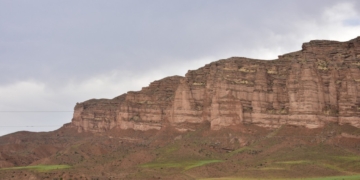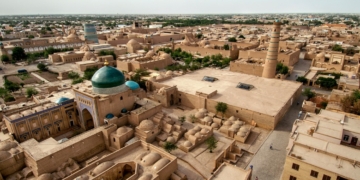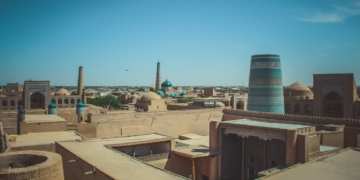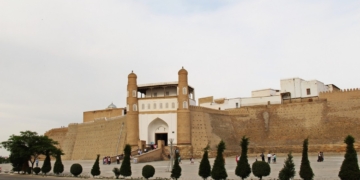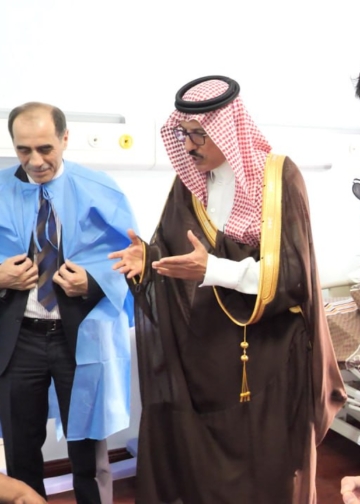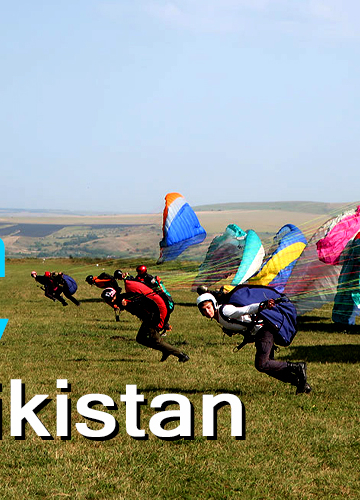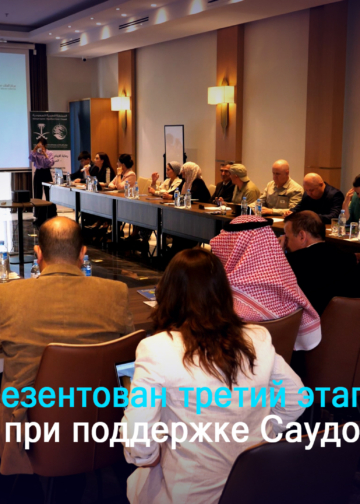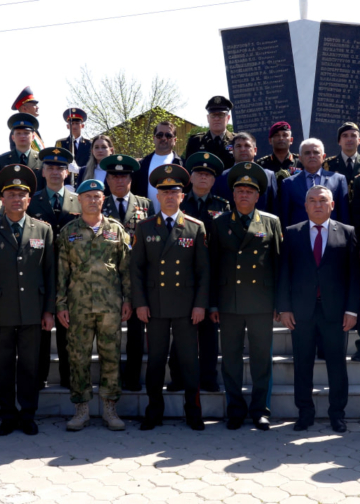id: 174104
date: 10/17/2008 6:47
refid: 08DUSHANBE1317
origin: Embassy Dushanbe
classification: UNCLASSIFIED
destination: 08DUSHANBE564
header:
VZCZCXRO7751
RR RUEHLN RUEHVK RUEHYG
DE RUEHDBU #1317/01 2910647
ZNR UUUUU ZZH
R 170647Z OCT 08
FM AMEMBASSY DUSHANBE
TO RUEHC/SECSTATE WASHDC 1055
INFO RUCNCIS/CIS COLLECTIVE
RUEHIL/AMEMBASSY ISLAMABAD 0230
RUSBPW/AMCONSUL PESHAWAR 0016
RUEHBUL/AMEMBASSY KABUL 0268
RUEHGV/USMISSION GENEVA 0006
RUEHNE/AMEMBASSY NEW DELHI 0179
RUEHBJ/AMEMBASSY BEIJING 0166
—————— header ends —————-
UNCLAS SECTION 01 OF 02 DUSHANBE 001317
SIPDIS
DEPT FOR SCA/CEN, PRM
E.O. 12958: N/A
TAGS: PREF, PREL, PGOV, PHUM, UNHCR, TI, AF
SUBJECT: TAJIKISTAN: AFGHAN REFUGEE UPDATE
REFTEL: DUSHANBE 564
1. SUMMARY: According to government data through August, the number
of new arrivals claiming asylum in Tajikistan, mainly from
Afghanistan, had reached 957 persons, 212 more than in all of 2007.
UNHCR reports that the Tajik government is denying status to a
higher percentage of refugees often for vague reasons and that many
refugee children are working rather than attending school. The
increased numbers, coupled with the perceived deteriorating security
situation in Afghanistan, have raised concerns among both UNHCR
staff and international development organizations in Tajikistan.
END SUMMARY.
2. On October 9, Emboff met with Ilija Todorovic, UNHCR
representative to Tajikistan, and Benjamin Phillips, Central Asia
Director of Save the Children, to discuss the current refugee
situation. According to official
statistics provided by the
Government of Tajikistan, there are 1,584 refugees and 231 asylum
seekers currently in country.
UNHCR reports that 501 persons
approached their office since January, 327 of whom had arrived in
2008. Almost all of those who
approached UNHCR are ethnic Tajik
Afghan nationals, with only eight cases (46 persons) of Hazara
ethnicity, four cases (22 persons) of Pashtun ethnicity, and two Sri
Lankans. Government data also
indicates refugees from Iran, Iraq,
Cameroon and Nigeria in country.
UNHCR reports that reasons given
by refugees for leaving Afganistan include: forced marriage; general
insecurity; health issues; reunification with prior refugee cases;
conflict with armed groups and/or the Taliban; land, property or
heritage issues; personal enmity; kidnapping; and, increasingly,
work with international organizations.
Todorovic projected that
Tajikistan would see nearly 1,300 newcomers this year.
3. Both Todorovic and Phillips expressed concern at the growing
number of refugee children working instead of attending school.
According to Todorovic, there are a «surprising» number of
Afghan
refugee children working in the local markets and bazaars, mainly as
porters for customers and vendors.
An asylum seeker is not legally
authorized to work until accorded refugee status by the government.
The process, which can drag through administrative appeals processes
and court hearings if denied, means that even those refugees who
arrive in Tajikistan with some means to support themselves find that
lifeline quickly runs out.
4. Todorovic noted that the percentage of asylum seekers actually
accepted by the government has been decreasing, from 40% in 2007 to
nearly 20% now. This, according
to Todorovic, is putting a strain
on the local NGOs that provide legal counseling that UNHCR works
with, as they then file appeals for the denied asylum seekers.
Reasons for denial are often vague and difficult to counter, such as
speaking out against the government of Tajikistan. Another reason
often given is the violation of the government resolutions
prohibiting the settlement of refugees in the urban areas of
Dushanbe and Khujand.
Investigators head to where the asylum seeker
claims to live, and when they discover, as is almost always the
case, that the person is actually living in Dushanbe, the asylum
petition is subsequently denied.
5. Afghan refugees, however, continue to head directly for Dushanbe.
In an effort to get around the
prohibition of living in the city, a
large community of Afghans has sprung up in Vakhdat, a small town
Qlarge community of Afghans has sprung up in Vakhdat, a small town
about 20 kilometers east of Dushanbe.
UNHCR knows of 260 refugee
families who settled there last year.
Todorovic claimed that the
«capacity» of Vakhdat to absorb more refugees is wearing thin.
UNHCR is hearing of more Afghans settling in Gissor, to the
south-west of Dushanbe. UNHCR
currently does not have a local
presence in that area.
6. According to UNHCR, the government continues to defend the ban on
refugee settlement in Dushanbe and Khunjand. They claim
overcrowding, increased crime, and displacement of Tajik citizens
from markets as reasons they must keep the prohibition in place.
Less often mentioned, according to Todorovic, but likely the
overriding concern, is the fear on the part of Tajik authorities
that when (not if) the security situation in Afghanistan completely
collapses, Dushanbe will become a destination for thousands of
refugees because there will be an established community here.
7. Both Phillips and Todorovic pressed the need for preemptive
action to prevent the deteriorating situation that refugees in
Tajikistan currently face. The
lack of social services, education,
health services, trauma counseling, psychological assistance and
basic shelter for many of the new arrivals will only be compounded
DUSHANBE 00001317 002 OF 002
should the numbers keep increasing.
Both expressed their concern
that violence in Afghanistan is increasing, that the definition of
the Taliban is changing to include all opposition to the state, that
international organizations are being increasingly targeted (and are
indeed resettling their own staff within Afghanistan) as factors
that demonstrate that the numbers will continue to rise. Although
he had no firm numbers at the meeting, Todorovic also stated that
they were seeing increased numbers arriving from southern
Afghanistan, a group that had previously headed to Pakistan for
refuge.
8. Todorovic ended the meeting by stressing that UNHCR itself was
not looking for more funding outside of established channels.
Rather, he and Phillips wanted to make sure that post was aware of
the situation and could help target funding directly to the local
implementers, such as the legal service NGOs. Todorovic again
expressed his appreciation for the FY08 Taft Fund grant that post
received to renovate three schools in Dushanbe. That grant focused
on the long-staying refugee population, those that had been in
Tajikistan for more than 15 years.
Only recently have the new
arrivals garnered attention. The
integration of the long-stayers
into Tajik society remains a priority of the UNHCR office in
Tajikistan (reftel), and could provide a basis for the further
integration of new arrivals if successful. In the meantime, there
is an acute fear of an impending humanitarian crisis in Tajikistan
this coming winter, which will impact refugee populations that much
more seriously and impair the ability of Tajik society to absorb
refugees.
JACOBSON
=======================CABLE ENDS============================
id: 174115
date: 10/17/2008 7:59
refid: 08DUSHANBE1318
origin: Embassy Dushanbe
classification: UNCLASSIFIED//FOR OFFICIAL USE ONLY
destination: 08DUSHANBE1316
header:
VZCZCXRO7810
RR RUEHAST RUEHBI RUEHCI RUEHLH RUEHLN RUEHPW RUEHVK RUEHYG
DE RUEHDBU #1318/01 2910759
ZNR UUUUU ZZH
R 170759Z OCT 08
FM AMEMBASSY DUSHANBE
TO RUEHC/SECSTATE WASHDC 1057
INFO RUEHVEN/USMISSION USOSCE VIENNA AU
RUEHBJ/AMEMBASSY BEIJING 0168
RUCNCLS/SOUTH AND CENTRAL ASIA COLLECTIVE
RUEAIIA/CIA WASHDC 0162
RUCNCIS/CIS COLLECTIVE
RUEABND/DEA HQ WASHINGTON DC
RUEAWJA/DEPARTMENT OF JUSTICE WASHINGTON DC
RUEKJCS/SECDEF WASHDC
—————— header ends —————-
UNCLAS SECTION 01 OF 03 DUSHANBE 001318
SENSITIVE
SIPDIS
STATE FOR SCA/CEN (HUSHEK)
STATE FOR INL/AAE (BUHLER)
JUSTICE FOR (DUCOT AND NEWCOMBE)
DEFENSE FOR OSP/P
E.O. 12958: N/A
TAGS: SNAR, KCRM, KJUS, PGOV, PREL, RF, TI
SUBJECT: TAJIKISTAN: NARCOTICS,
LAW ENFORCEMENT, AND JUSTICE SECTOR
JULY — SEPTEMBER UPDATE
REF: Dushanbe 1316
1. (U) Summary: The Ambassador
and Foreign Minister signed letters
of agreement to provide over $13 million in additional INL border
security, police, anti-crime, and justice sector assistance to
Tajikistan. This status report
and reftel cover these and prior
projects. Tajikistan’s Drug
Control Agency worked with Afghanistan
and other neighboring countries, improved drug interdiction and
resulted in the seizure of 2,754 kilos of drugs during the first
nine months of 2008, including 1,152 kilos seized by the Tajikistan
Drug Control Agency alone, a 25.6% increase over last year. The
Border Guards too have been active with multiple instances of
hundreds kilo drug seizures.
Since the beginning of 2008, in the
Shurabad border area alone Border Guards had fifteen firefights with
armed drug smugglers. Judges are
handing down stiff sentences to
convicted foreign drug traffickers.
Working with anti-drug services
from Russia and elsewhere, the Sugd Regional Counter-Narcotics
Department of the Ministry of Internal Affairs broke up three
narco-trafficking rings. The
Agency for State Financial Control and
Combating Corruption opened criminal cases against 122 state
officials (more than half of them are law enforcement and security
agencey officers) for abuse of office, bribery, and embezzlement of
state funds. End summary.
INSTITUTIONAL DEVELOPMENTS
2. (U) On August 2, Ambassador Jacobson and Foreign Minister Zarifi
signed two letters of agreement which provide more than $13 million
to continue border security and police programs to enhance
Tajikistan’s security and to launch justice sector projects to
improve rule of law and provide access to justice.
3. (U) With this assistance, the International Narcotics and Law
Enforcement program provided more than $28 million in assistance to
support Tajikistan’s security, rule of law and counter narcotics
efforts since 1992. Overall, the
United States provides more than
$40 million of assistance annually to Tajikistan. These funds
contribute to Tajikistan’s security, economic development,
democratic freedom, and the health and education of Tajikistan’s
citizens.
4. (U) The Director of Tajikistan’s Drug Control Agency (DCA),
Rustam Nazarov, attended a meeting of the XXVI International Drug
Enforcement Conference (IDEC) in Istanbul, Turkey July 8-10. The
U.S. Drug Enforcement Administration-organized conference brought
together more than 300 high-level law enforcement officials from 93
countries throughout the world.
Conference participants focused on
pharmaceutical abuse, the nexus of drugs and terrorism, money
laundering, and intelligence sharing across multi-national law
enforcement agencies. General
Nazarov reported on the drug
situation in Tajikistan and drug control measures being taken in
Central Asia.
5. (U) On August 11 the United Nations Office on Drugs and Crime
sponsored a two-week training course to improve the skills of 15
Afghan police, customs, and border service officers to fight against
drug trafficking. Officers from
the Drug Enforcement Agency and the
Drug Control Agency jointly conducted the training.
MUTUAL COOPERATION
QMUTUAL COOPERATION
6. (U) On July 9, the Drug Control Agency Deputy Director Vaisiddin
Azamatov held joint meetings with the Afghan Minister of Interior,
Zarar Ahmad Moqbil. The officers
discussed cooperation and
expansion of joint efforts to fight drug trafficking. Azamatov
briefed the Afghan minister on the drug situation in Tajikistan and
measures taken by the Tajik government to improve the efficiency of
the law enforcement agencies to fight drug trafficking.
NARCOTICS AND WEAPONS SEIZURES
7. (U) During the first nine months of 2008, the Drug Control Agency
and other law enforcement and security services seized 2,754 kilos
of drugs. DCA officers
single-handedly seized over 1,152 kilos of
drugs, a 25.6% increase over the comparable period of 2007,
according to the Analytical Information Department of the
counternarcotics agency. Drug
control agency officers carried out
DUSHANBE 00001318 002 OF 003
15 joint operations with the other Tajik counternarcotics agencies
seizing an additional 233 kilos.
The DCA carried out 37 joint
operations with Afghan and Kazakh law enforcement services and
seized an additional 1,369 kilos of drugs, including 444 kilograms
of heroin.
8. (U) On July 16, Tajik law enforcement officials seized 36 kilos
of raw opium and 114 grams of hashish in the Vahdat district located
17 kilometers east of Dushanbe.
Ministry of Internal Affairs
Counter-Narcotics Department officers arrested a resident of
Khatlon’s Muminabad district and initiated criminal proceedings
against him.
9. (U) The Committee for National Security reports that officers
seized nearly 100 kilos of drugs in Hamadoni district. On July 14,
border guards on routine patrol tried to detain a group of Afghan
drug traffickers who were illegally crossing the Tajik-Afghan border
river in Khatlon’s Khamadoni district.
Border guards fired on the
traffickers who fled back to Afghanistan. Five sacks containing 98
kilograms of narcotics, including 10 kilograms of heroin, 52
kilograms of raw opium, and 36 kilograms of cannabis were found at
the scene.
10. (U) On August 7, also in the Khatlon area, Border Guards
detained a Tajik national at the Afghan border in Shurabad district
and confiscated more than 140 kilograms of hashish and five
kilograms of heroin as well as a Kalashnikov machine-gun.
Authorities opened criminal proceedings against the drug trafficker
and an investigation is under way.
11. (U) On September 16 and 23 in the Yol area of the Tajik-Afghan
border the Border Guards seized 252 kilograms of narcotics including
30 kilos of heroin and 222 kilos of hashish. According to press
reports, several traffickers and two border guards were killed in
the skirmishes but the Border Guards will not confirm this
information.
12. (U) This year the Border Guards have had fifteen firefights with
armed drug smugglers in the Shurabad border area alone. The Border
Guards and security officers on this stretch of the border seized
452 kilograms of drugs, including 40 kilograms of heroin since the
beginning of the year.
13. (U) During the course of an investigation of an earlier arrest
of a Tajik drug smuggler which netted 5.2 kilos of drugs, the
smuggler provided information about an additional 14 kilos of heroin
which DCA officers seized in the Khatlon area. The smuggler claimed
the drug belonged to an Afghan smuggler. DCA officers continue to
investigate.
14. (U) According to the Customs Service, they discover about two
kilos of heroin hidden in dried apricots during passenger inspection
at the Dushanbe airport prior to a flight to Samarra, Russia on
September 10. The drugs
reportedly belong to Bakhtiyor Junaydov, a
resident of GBAO’s Roshtqala district.
Authorities are pressing
charges against Junaydov under Article 200 (illicit drug
trafficking); Article 32 (criminal attempt); and Article 289
(contraband) of Tajikistan’s Criminal Code.
CONVICTIONS
15. (U) On September 14 Saddriddin Toshev, a judge from the
Shohmansur area of Dushanbe, sentenced three foreign nationals for
drug trafficking. The court
sentenced Ms. Garcia Joanna Gardovski,
Qdrug trafficking. The court
sentenced Ms. Garcia Joanna Gardovski,
a Philippine national, to 13 years in prison for attempted transport
of three kilograms of heroin to Istanbul. The court also sentenced
Makkongza Azvidin Flora, a South African national, to 15 years in
prison. Inspectors found six
kilograms of heroin in his luggage.
Tajik law enforcement officers traced the drugs to Khonzoda valadi
Butkhoja, the Afghan national main supplier. The court sentenced
him to 16 years in prison.
DRUG-TRAFFICKING GROUPS
16. (U) Since the beginning of this year, the Sugd Ministry of
Internal Affairs counternarcotics directorate (northern Tajikistan)
broke up three groups of narco-traffickers and solved 16
DUSHANBE 00001318 003 OF 003
drug-related crimes. During the
reporting period, the
Counter-Narcotics Directorate seized over 332 kilograms of
narcotics, including 129 kilograms of heroin. During the January —
June period, authorities in the Russian Federation detained 11
residents of the Sugd province for drug smuggling including four
from Mastchoh, three from Spitamen, two from Jabbor Rasulov and one
from Pendjikent. Law enforcement
agencies conducted a large-scale
anti-drug operation, dubbed Poppy-2008, involving officers from the
counternarcotics directorate and other law enforcement agencies of
the Sugd region.
REWARDS FOR FIGHT AGAINST DRUGS
17. (U) The President of Tajikistan bestowed awards on three Drug
Control Agency officers for exemplary service combating drug
trafficking. The President
presented the «Spitamen Level II» award
to senior investigator Mirnemat Dodometov; the «Khizmati
Shoista»
award to Saidjon Nehmonov, the head of Investigation Department of
DCA; and presented a Certificate of Merit to Murodqul Hazratkulov,
the head of Administration Department at DCA. Since the
establishment of the Drug Control Agency 21 members have received
awards.
CORRUPTION
18. (U) Officers of the Khatlon Anti-Corruption Department
discovered serious financial violations in the Pyandj Production
Cooperative «Zohiriyo».
A spokesperson for the Anti-Corruption
Agency said that Jalol Zoidov, director of «Zohiriyon»
concealed
income and had not paid 348,876 somonies in taxes (equivalent to
more than $100,000). The Khatlon
Anti-Corruption Department began
criminal proceedings against Zoidov under the provisions of Article
291 of Tajikistan’s Criminal Code — tax evasion.
19. (U) During the first six months of this year the Agency for
State Financial Control and Combating Corruption reports it opened
criminal cases against 122 state officials. The officials face
charges of abuse of office, bribery, and embezzlement of state
funds. Anti- corruption Agency
officials began more than half of
the criminal proceedings against officers from the law enforcement
agencies and security services including 34 against police officers,
six against tax officers, five against customs officers, nine
against officers from the Ministry of Defense, two against border
officers, six against officials with the Ministry of Justice, and
three against judges.
20. (U) As an example, the spokesperson outlined the case against
Rahmon Sharipov, chief of the police directorate in Khatlon’s Rumi
district. The spokesman said
«Sharipov faces charges of abuse of
office and bribery. The
investigation has established 34 instances
of bribe-taking for 10,000 somonies and $12,000. Officers also
found more than 5,000 somonies and $41,000 as well as several
unregistered criminal cases in his house.» In all, the
Anti-Corruption Agency detected 504 corruption-related crimes over
the report period of which public servants committed 122.
INL PROJECT IMPLEMENTATION
21. (U) During the reporting period, INL Dushanbe continued to
implement projects in border security, policing, and the with
ABA/ROLI in the justice sector.
Upon signing of ALOA 7 and 8 INL
began implementation of new projects in eastern Tajikistan’s as well
Qbegan implementation of new projects in eastern Tajikistan’s as well
as in the justice sector, anti-TIP, and demand reduction sectors.
Full report reftel.
JACOBSON
=======================CABLE ENDS============================
id: 174193
date: 10/17/2008 13:12
refid: 08USNATO380
origin: Mission USNATO
classification: CONFIDENTIAL
destination:
header:
VZCZCXYZ0000
OO RUEHWEB
DE RUEHNO #0380/01 2911312
ZNY CCCCC ZZH
O 171312Z OCT 08
FM USMISSION USNATO
TO RUEHC/SECSTATE WASHDC IMMEDIATE 2366
INFO RUEHZG/NATO EU COLLECTIVE PRIORITY
RUEHAH/AMEMBASSY ASHGABAT PRIORITY 4791
RUEHTA/AMEMBASSY ASTANA PRIORITY
RUEHEK/AMEMBASSY BISHKEK PRIORITY 4775
RUEHDBU/AMEMBASSY DUSHANBE PRIORITY
RUEHBUL/AMEMBASSY KABUL PRIORITY 1050
RUEHNT/AMEMBASSY TASHKENT PRIORITY 4902
RHEHNSC/NSC WASHDC PRIORITY
RUEHNO/USDELMC BRUSSELS BE PRIORITY
RUEPGBA/CDR USEUCOM INTEL VAIHINGEN GE PRIORITY
RUEHBS/USNMR BRUSSELS BE PRIORITY
RUEAIIA/CIA WASHDC PRIORITY
RHMFISS/CDR USCENTCOM MACDILL AFB FL PRIORITY
RUEKJCS/SECDEF WASHINGTON DC PRIORITY
RHEFDIA/DIA WASHDC PRIORITY
RUEKJCS/JOINT STAFF WASHDC PRIORITY
—————— header ends —————-
C O N F I D E N T I A L USNATO 000380
SIPDIS
E.O. 12958: DECL: 10/16/2018
TAGS: MARR, NATO, PGOV, PREL, AF, KZ, KG, TI, TX, UZ
SUBJECT: NATO ENGAGES IN NEW FORUM ON AFGHANISTAN
Classified By: CDA W. S. Reid, III, for reasons 1.4 (b) and (d)
1. (C) SUMMARY: In an effort to facilitate increased regional
dialogue on Afghanistan, Secretary General (SYG) Jaap de Hoop
Scheffer presided over the first meeting of NATO Permanent
Representatives with the NATO representatives from
Afghanistan, Kazakhstan, Kyrgyzstan, Tajikistan, Turkmenistan
and Uzbekistan. The invited
partner nations used the forum
to reinforce the need for social and economic development in
Afghanistan, while Allies used the forum to press for
implementation of draft transit agreements. The Political
Committee was tasked to develop a workplan for increased
cooperation within the forum. END
SUMMARY.
2. (C) On October 13, NATO PermReps met with their colleagues
from Central Asia and Afghanistan as part of a process
designed to build greater transparency and enhance the flow
of information between NATO, Afghanistan, and Afghanistan’s
neighbors. NATO SYG Jaap de Hoop
Scheffer reaffirmed NATO’s
commitment to Afghanistan, reporting on relevant items from
the October 9-10 Budapest Defense Ministerial. The
Afghanistan representative argued that large parts of his
country were now safe and that the army was increasing its
role in fighting terrorists. At
the same time, he
acknowledged that more must be done to stop the flow of funds
to drug traffickers. He said that
the Central Asian nations
play a vital role in the stability of Afghanistan and thanked
Tajikistan, Kyrgyzstan and Uzbekistan for the use of their
air base to support ISAF. The
Kazakhstan representative
highlighted his nation’s role in facilitating ISAF assistance
by granting overflight licenses to 6,000 NATO aircraft,
including emergency landing clearances to 80 aircraft. He
also announced a proposal to send staff officers and possibly
a medical unit to ISAF and commented that Kazakhstan hoped
that the draft transit agreement with NATO could be finalized
soon.
——————————————— —
Building a Land Bridge between Asia and the West
——————————————— —
3. (C) The Afghanistan representative pointed out that in
2001 Afghanistan was isolated from its Central Asian
neighbors; its only bridge across an international border was
walled off by concrete. He said
that since the overthrow of
the Taliban, however, thousands of kilometers of new roads
linking Kabul to the provinces and beyond have been built,
including five bridges to Tajikistan, and one bridge to
Uzbekistan. He also pointed out
that the Ring Road is now
almost complete. The Tajikistan
representative thanked the
United States for its assistance in constructing the bridges
between his country and Afghanistan, but made a veiled
comment that the «Afghan side is not helping» (Note: he did
not elaborate on this comment. End Note.) The Uzbekistan
representative reported that his country offers Afghanistan
construction materials and is working to build the road from
Mazar-e-Sharif to Kabul. He also
stated that Uzbekistan is
working with the UN to ensure the flow of cargo from
international donors to Afghanistan.
Turkmenistan added that
it had invested USD 550,000 in constructing railroad lines in
Afghanistan and extending links to neighboring countries.
The Afghanistan representative said that these infrastructure
improvements have resulted in an average decrease of 32 hours
of travel time to transit the country, helping Afghanistan
realize its goal of being a «land bridge» between Central
Asia, South Asia and the West.
——————————————— ——-
The Economy, Energy and Education — Recurring Themes
——————————————— ——-
4. (C) The representative from Tajikistan argued that an
absence of economic gains flowing from the government to the
people contributed to the lack of stability in the region.
The Uzbekistan representative echoed these comments, adding
that critical social and economic factors must be addressed
and the quality of life must be improved for the region to
stabilize. He informed the
Council that Uzbekistan is
offering foodstuffs to Afghanistan.
The Kazakhstani
representative reported that Astana has provided humanitarian
aid totaling USD 3 million to Afghanistan in 2008.
5. (C) The Afghanistan representative admitted that his
country still lacks the energy resources it needs, adding
that its demand is expected to increase threefold in the next
15 to 20 years. He thanked
Tajikistan, Turkmenistan,
Uzbekistan and acknowledged the efforts of Pakistan in
securing energy transfer agreements and announced the
construction of a gas pipeline by 2010.
The Tajikistan
representative noted Dushanbe is currently transferring 2
million kilowatt hours of energy to Afghanistan. The
representative from Turkmenistan reported that Ashgabat is
providing Afghanistan with electric power and liquid gas at
reduced prices, working to reconstruct the electricity grid
in Herat province (where many ethnic Turkmen live), and
working with India to construct a new pipeline.
6. (C) The Tajikistan representative stated that an
«enlightenment of the people» of Afghanistan would also help
build stability in Afghanistan.
To this end, Tajikistan is
hosting 500 Afghan students in its universities and 1,500
primary and secondary students in its schools. Kazakhstan
reported that it offered scholarships to 1,000 Afghan
students to study in Kazakhstani universities. Turkmenistan
is offering grants to Afghan students to its country’s
universities, as well as providing school supplies for
children. He also added that his
country is offering free
medical aid to Afghan citizens living near the Turkmenistan
border. The Kyrgyzstan
representative, recalling that before
2001 Afghan children did not have the opportunity to learn
about technology or languages, commented on the «human
dimension» of Afghanistan’s reconstruction. At the same
time, he cautioned that international aid is not always
aligned with the priorities of building new schools or job
creation. He also stated that 4
million Afghan citizens who
fled to Pakistan are returning to their home country —
despite better economic opportunities they might have in
Pakistan — because of their unflagging faith in their
homeland.
7. (C) On the diplomatic front, the Afghanistan
representative reported that Kabul is making regional
political and economic cooperation a priority. The
Uzbekistan representative referred to President Karimov’s
speech at the Bucharest Summit, where he proposed
re-energizing the old «6-plus-2» format for discussion of
Afghanistan by adding NATO to make it a «6-plus-3» forum.
Turkmenistan, which said it wanted to be known as a
peacemaker in the region, reported that President
Berdimuhammedov had met with Afghan President Karzai four
times. Kyrgyzstan mentioned it
hosted the SCO conference in
June, at which Afghanistan was discussed. In response to
questions from Canada, Afghanistan’s representative said that
it is receiving more assistance from India than from China,
with whom it shares a small border, and that the new
administration in Pakistan reflects that the Pakistanis are
more sincere in wanting to fight terrorists.
——————————-
NATO: Where do we go from here?
——————————-
8. (C) Deputy Chairman of the
Military Committee Lieutenant
General Eikenberry thanked the Central Asian nations for
their contributions and forecasted big improvements from the
Afghan National Army and Afghan National Police in the coming
years. Poland announced a
contribution of 50,000 euros to
the Post-Operations Humanitarian Relief Fund and the
development with the U.S. of a PRT in Ghazni province.
Croatia announced that it was considering contributing an
OMLT to the ISAF effort in Afghanistan.
9. (C) Allies applauded the assistance the Central Asian
countries are providing, but asked for more concrete
proposals for what NATO can do to help.
Germany reminded the
countries that NATO was not in «the development business.»
The U.S., Germany, Poland, Italy and Spain called on
Kazakhstan and Uzbekistan to implement the draft ground
transit agreements as soon as possible, with U.S. Ambassador
Volker additionally stressing the need for flexible
agreements. Poland added that it
is sometimes difficult to
satisfy the requirement of a one-week notice for overflight
licenses. The U.S., Turkey and
Germany reinforced the need
for better border management and policing of
narco-traffickers and organized crime.
Romania asked the SYG
to task the Political Committee to develop a workplan for
future cooperation within this new format.
REID
=======================CABLE ENDS============================
id: 174260
date: 10/17/2008 20:51
refid: 08STATE111267
origin: Secretary of State
classification: UNCLASSIFIED//FOR OFFICIAL USE ONLY
destination:
header:
VZCZCXYZ0014
PP RUEHWEB
DE RUEHC #1267 2912056
ZNR UUUUU ZZH
P 172051Z OCT 08
FM SECSTATE WASHDC
TO RUEHAH/AMEMBASSY ASHGABAT PRIORITY 0000
RUEHTA/AMEMBASSY ASTANA PRIORITY 0000
RUEHEK/AMEMBASSY BISHKEK PRIORITY 0000
RUEHDBU/AMEMBASSY DUSHANBE PRIORITY 0000
RUEHMO/AMEMBASSY MOSCOW PRIORITY 0000
RUEHFR/AMEMBASSY PARIS PRIORITY 0000
RUEHNT/AMEMBASSY TASHKENT PRIORITY 0000
RHMFISS/CDR USCENTCOM MACDILL AFB FL PRIORITY
RUEAIIA/CIA WASHINGTON DC PRIORITY 0000
RHEHNSC/NSC WASHINGTON DC PRIORITY 0000
RUEHBS/USEU BRUSSELS PRIORITY
RUCNDT/USMISSION USUN NEW YORK PRIORITY 0000
—————— header ends —————-
UNCLAS STATE 111267
SENSITIVE
SIPDIS
E.O. 12958: N/A
TAGS: PREL, ENRG, KSUM, EPETUN, UN, TX, UZ, TI, KZ, KG
SUBJECT: DAS KROL’S CONVERSATION WITH MIROSLAW JENCA OF
THE UN CENTER FOR PREVENTATIVE DIPLOMACY
1. (SBU) Summary: In an October
15 telephone conversation
with SCA DAS George Krol, Miroslaw Jenca, Director of the UN
Center for Preventative Diplomacy in Ashgabat, noted the
leaders of the five Central Asian states who met separately
during the recent CIS summit in Bishkek, Kyrgyzstan had
managed to resolve their eve of winter, water and energy
disputes quickly and pragmatically. Jenca also discussed
prospects for Turkmenistan’s UN resolution on energy
reliability (formerly energy security), and the priorities of
the UN Center for Preventative Diplomacy. End Summary
2. (SBU) On October 15 the Director of the UN Center for
Preventative Diplomacy Ambassador Miroslaw Jenca called SCA
DAS Krol from Ashgabat. He said
he was calling on the eve of
a meeting of Central Asian Deputy Foreign ministers at the
Center at which they would approve the priorities for the
Center for the next three years of operations. He wanted
inform Krol of those priorities but also to pass on his
reflections from the recently concluded CIS Summit meeting in
Bishkek where he had been an observer.
3. (SBU) Leaders Find Mutual Agreement on Sticky Water and
Energy Issues
Jenca had been invited to attend a meeting of the five
Central Asian presidents that took place October 10 on the
margins of the summit. Jenca was
greatly impressed that the
five Central Asian leaders had in the course of 45 minutes
pragmatically and efficiently resolved the pre-winter
disputes on water and energy that had been growing
increasingly bitter and intractable.
Even Karimov and
Bakiyev-spoke pragmatically on resolving their energy and
water differences. Jenca said they discussed without emotion
what was needed, how much was needed, and what was to be
done. The upstream leaders,
Rahmon and Bakiyev agreed to the
amount of water to release to their downstream neighbors
whose leaders, Karimov, Nazarbayev and Berdimuhamedov agreed
to supply energy to their upstream colleagues to meet their
winter needs. Jenca observed the leaders left the meeting
satisfied that they had avoided the energy and water crises
facing them this winter.
4. (SBU) Jenca emphasized the
agreements only covered this
year, but he thought the atmosphere at the meeting might
indicate the first steps toward developing a mechanism to
resolve the sticky water and energy problems more long term.
It was clear to Jenca these problems could only be resolved
at the presidential level.
Earlier efforts to address them
at the ministerial level, such as the September 18 French
sponsored Paris EU-Central Asia ministerial had only ended in
acrimony. Jenca had been a
witness there as well and
recalled the nasty exchange between the Uzbek and Kyrgyz
foreign ministers over water and the hard time the French had
negotiating a mention of water in the final communiqu with
the obdurate Uzbeks. Jenca noted
the agreements reached in
Bishkek would be finalized and signed by all parties in two
weeks.
5. (SBU) Cooperation on Water and Energy
Jenca claimed all five leaders had agreed in principle on the
substance of the 1992 water convention that the Kyrgyz and
Tajiks refuse to sign. The
leaders of the downstream
countries-Karimov, Nazarbayev, and Berdimuhammedov-noted
they understood the domestic political reasons preventing
their upstream colleagues-Rahmon and Bakiyev-from signing or
publicly endorsing the convention, which recognizes the
region’s contentious rivers as transnational. Rahmon and
Bakiyev on the other hand agreed that the rivers are de facto
transnational and should be treated as such. Jenca again
expressed hope this mutual understanding could lend itself to
developing a more long-term mechanism for managing the
region’s water and energy issues before they become too acute
every winter.
6. (SBU) Turkmenistan’s UN Resolution on Energy Reliability
Jenca noted the leaders discussed the new Turkmen gas
reserves, which gave Turkmen president Berdimuhammedov the
opportunity to push for Turkmenistan’s draft UN Resolution on
energy reliability (Jenca noted that the Turkmen had changed
the terminology from «security» to
«reliability.») The other
Central Asian leaders gave the Resolution a positive
reception, but did not commit themselves to co-sponsoring the
Resolution except for Kazakhstan which has become a
co-sponsor of the resolution.
Jenca believed middle level
officials in other Central Asian foreign ministries still had
questions about the resolution. Answering Jenca’s question
about the U.S. position, DAS Krol mentioned the Turkmen had
approached the U.S. for support and co-sponsorship of their
resolution but our experts were still examining it. Jenca
thought the Turkmen were most interested in this resolution
as it would endorse Turkmenistan hosting an international
conference on energy reliability which would flesh out the
issue.
7. (SBU) Priorities for the Center of Preventative Diplomacy
Finally, Jenca noted Deputy Foreign Ministers of the five
Central Asian states would meet October 16 in Ashgabat to the
endorse the Center’s priorities for the next three years.
Jenca enumerated these as: 1) water/energy issues; 2)
cross-border issues; 3) Afghanistan. On the latter, the
priority would be to get Central Asian states involved in
infrastructure projects that would support stability in
Afghanistan and lead to greater economic development in the
region as a whole.
8. (SBU) Russia Resurgent
Jenca commented it was clear at both the CIS and Shanghai
Cooperation Organization (SCO) summits in Bishkek and
Dushanbe respectively (which he also attended) that Russia is
a growing factor and player in Central Asia. Jenca noted
Russian President Medvedev used his visits at both events to
sign many deals with the host countries especially in the
energy and extractive minerals sectors.
Gazprom in
particular is actively trying to achieve local market
dominance on gas supplies and pricing.
Jenca concluded that
Russia clearly wants to dominate, wants to prevent
instability in the region and is willing to pay for it.
9. (SBU) Comment
We share Jenca’s hope that the Central Asian leaders might
find a way to resolve the region’s sticky water and energy
problems on a more long term basis and more pragmatically
instead of bickering and waiting until the very last moment
every winter. Perhaps they are
coming to recognize climate
change is affecting them all and forcing them to act more
pro-actively, pragmatically and cooperatively to avoid a
common disaster. We are also pleased the priorities of
Jenca’s Center very much accord with our own in the region,
especially in developing greater cooperation with
Afghanistan. End Comment.
RICE
=======================CABLE ENDS============================
id: 174277
date: 10/18/2008 8:09
refid: 08KABUL2780
origin: Embassy Kabul
classification: UNCLASSIFIED//FOR OFFICIAL USE ONLY
destination:
header:
VZCZCXRO8762
RR RUEHPW
DE RUEHBUL #2780/01 2920809
ZNR UUUUU ZZH
R 180809Z OCT 08
FM AMEMBASSY KABUL
TO RUEHC/SECSTATE WASHDC 5860
INFO RUCNAFG/AFGHANISTAN COLLECTIVE
RUEHTC/AMEMBASSY THE HAGUE 0699
RUEKJCS/OSD WASHINGTON DC
RUEKJCS/JOINT STAFF WASHINGTON DC
RHMFIUU/HQ USCENTCOM MACDILL AFB FL
RHEHAAA/NATIONAL SECURITY COUNCIL WASHINGTON DC
RUEAIIA/CIA WASHINGTON DC
RHEFDIA/DIA WASHINGTON DC
—————— header ends —————-
UNCLAS SECTION 01 OF 02 KABUL 002780
DEPARTMENT FOR SCA/FO, SCA/A, EUR/RPM
STATE PASS TO AID FOR ASIA/SCAA
NSC FOR WOOD
OSD FOR WILKES
CENTCOM FOR CG CSTC-A, CG CJTF-101 POLAD
THE HAGUE PASS TO POL
SENSITIVE
SIPDIS
E.O. 12958: N/A
TAGS: PGOV, PREL, ETRD, EFIN, AF, TI
SUBJECT: DUTCH PREPARE FOR CIVILIAN COMMAND OF URUZGAN PRT AND
EVENTUAL TROOP WITHDRAWAL
1. (SBU) Summary: The Dutch
civilian staff embedded in the Task
Force Uruzgan (TFU) and PRT was recently expanded to twelve
officials in an effort to ensure civilian control over governance
and development issues, and greater involvement in security matters.
As of July 26, the senior Dutch
civilian, or CivRep, is now
co-commander of the TFU on security, governance and development,
although the TFU Commander retains final authority on security
issues. The Deputy CivRep, a new
position, is co-commander of the
PRT, but his successor will assume full command of the PRT in March
2009. The military has
successfully integrated the civilian staff
into all TFU and PRT operations, and the transition to civilian
leadership of the PRT is consistent with the Netherlands’ firm
commitment to relinquish leadership of the ISAF mission in Uruzgan,
withdraw all or most of its troops in 2010, and maintain a civilian
staff in the province following the troop withdrawal. End summary.
Civilians Assume Co-Command, Prepare for Full PRT Command
——————————————— ———-
2. (SBU) The Dutch Task Force
Uruzgan (TFU) and PRT are steadily
and deliberately making the transition from military to civilian
leadership. On July 26, the
civilian staff was enlarged from nine
to twelve MFA officials, and they were placed in key positions in
the TFU and PRT (1,700 Dutch troops in total). The senior Civilian
Representative (CivRep), who is equivalent to a colonel in rank,
leads a team of one Deputy CivRep , two political advisors, three
development advisors, two tribal/cultural advisors, and three
Dutch-Afghan development assistants/interpreters. The CivRep and
Deputy CivRep now serve as co-commanders with the TFU Commander and
PRT Commander.
3. (SBU) The TFU and PRT
Commanders currently remain the final
authority on military and civil-military coordination (CIMIC)
operations, but the civilian staff has the lead on governance and
development issues and ensures civilian input in security matters.
The civilian staff report directly to the CivRep, not the TFU or PRT
Commander. The final phase of the
transition will be in March 2009,
when a Dutch diplomat will replace the PRT Commander.
4. (SBU) The military commander
and civilian staff have agreed on
the following measures to facilitate increased civilian leadership
and involvement in the PRT and TFU:
— The Deputy CivRep chairs a bi-weekly civil-military meeting that
synchronizes the reconstruction and development activities of the
Dutch PRT mission teams operating in the province (military staff);
PRT functional specialists for civil infrastructure, rule of law,
and business development (military reservists); Dutch development
advisors (civilians); Australian Reconstruction Task Force
(military); and USAID and State Department representatives.
— The development advisors are involved in the planning of all
military-led reconstruction (i.e. CIMIC) projects.
— The CivRep and political advisors participate in all planning
sessions on security operations, ANSF training and mentoring, and
counter-narcotics efforts.
— The civilian staff will receive their own armored vehicles to be
able to conduct meetings in the provincial capital, without relying
on TFU or PRT support. Currently,
the civilian staff has to rely on
military transport and adjust their activities to the schedule of
the military.
— The CivRep and Deputy CivRep share office space with the TFU
Commander and the PRT commander respectively.
— The CivRep and COM TFU jointly receive and brief visitors (e.g.
politicians, journalists and NGOs) to underline the increasing
civilian face of TFU.
Military Welcomes Civilian Leadership…
—————————————-
5. (SBU) The current influence of
the civilian staff in TFU and PRT
KABUL 00002780 002 OF 002
activities is significant and pervasive.
For example, PRTOff
observed that the civilians played a critical role in shaping the
TFU’s military response to recent security concerns in Chora and
Tarin Kowt districts, and no decisions regarding the TFU’s and PRT’s
involvement in Afghan National Police training are made without
civilian input. The TFU and PRT
Commanders remain convinced that
Coalition forces have created sufficient security to allow for a
greater focus on governance and development. Thus, civilian
leadership of the PRT and civilian co-command of the TFU is the next
logical step.
…And Plans to Withdraw by 2010
———————————
6. (SBU) The Dutch CivRep
recently confirmed for PRTOff that the
Netherlands will relinquish lead nation status and withdraw all or
most of its troops from Uruzgan in 2010.
The Dutch have already
begun to make preparations for their troop withdrawal by replacing
Dutch Operational Mentor and Liaison Teams (OMLTs) with French,
Australian, Hungarian, and possibly U.S. forces, although the Dutch
will retain command and control.
The Czech Republic and Slovakia
also recently joined the TFU and PRT to relieve or augment Dutch
forces assigned to CIMIC planning and base security. Although
deliberations in The Hague are ongoing, the TFU Commander and CivRep
expect that Dutch civilians will remain in Uruzgan after the troop
withdrawal in 2010. Thus, greater
civilian leadership and
involvement in the TFU and PRT is consistent with Dutch planning for
post-2010.
WOOD
=======================CABLE ENDS============================
id: 174282
date: 10/18/2008 11:58
refid: 08KABUL2785
origin: Embassy Kabul
classification: UNCLASSIFIED//FOR OFFICIAL USE ONLY
destination:
header:
VZCZCXRO8799
RR RUEHPW
DE RUEHBUL #2785 2921158
ZNR UUUUU ZZH
R 181158Z OCT 08
FM AMEMBASSY KABUL
TO RUEHC/SECSTATE WASHDC 5872
INFO RUCNAFG/AFGHANISTAN COLLECTIVE
RUEHSM/AMEMBASSY STOCKHOLM 0303
RUEKJCS/OSD WASHINGTON DC
RUEKJCS/JOINT STAFF WASHINGTON DC
RHMFIUU/HQ USCENTCOM MACDILL AFB FL
RHEHAAA/NATIONAL SECURITY COUNCIL WASHINGTON DC
RUEAIIA/CIA WASHINGTON DC
RHEFDIA/DIA WASHINGTON DC
—————— header ends —————-
UNCLAS KABUL 002785
DEPARTMENT FOR SCA/FO, SCA/A, EUR/RPM
STATE PASS TO AID FOR ASIA/SCAA
NSC FOR WOOD
OSD FOR WILKES
CENTCOM FOR CG CSTC-A, CG CJTF-101 POLAD
STOCKHOLM FOR POL
SENSITIVE
SIPDIS
E.O. 12958: N/A
TAGS: PGOV, PREL, ETRD, EFIN, SNAR, AF, TI
SUBJECT: ATTA RAISES SPECTER OF INSECURITY IN NORTH
1. (U) Summary: In his remarks at an International Peace Day event,
Balkh Governor Atta Mohammed Noor predicted greater insecurity in
the northern provinces within a year’s time if the north does not
receive its share of development projects and if there continues to
be what he deems a lack of coordination between coalition forces and
Afghan authorities resulting in civilian deaths. Atta also
criticized attempts by the international community (IC) to pressure
the GIRoA to name major Afghan drug traffickers, and challenged the
IC to clean up its own drug trafficking problems first. End
summary.
2. (SBU) Atta cited three factors contributing to the lack of peace
in Afghanistan: Pakistani
interference, drug trafficking, and
civilian casualties caused by the failure of ISAF to coordinate
operations with Afghan authorities. He demurred on commenting more
on Pakistan out of concern that it might run contrary to GIRoA
policy, but was energized over the issue of drug trafficking,
calling it a «black business» that some are using to
exacerbate
tensions and violence in the country.
Atta quickly deflected the
argument that the GIRoA hasn’t come forward with names of key drug
traffickers as demanded by the IC, asking why the West isn’t doing
more to stop narcotics trafficking in their own countries. (Note:
Atta was referring to the «list» of drug traffickers that
former
Interior Minister Jalali claimed to have. Some believe that Atta
himself might be one of the drug traffickers named in that list. )
3. (U) Citing Balkh’s successful poppy eradication campaign, Atta
chided the IC for its «empty promises» of implementing
alternative
livelihood schemes, reminding the audience that the people of Balkh
have not received any development projects in return for their
economic sacrifices. He
rhetorically asked the audience of
businessmen, government officials and young people how a province
like Helmand with a huge poppy problem could reap $400 million in
development projects and a poppy-free province like Balkh receives
less than $4 million in projects.
4. (U) The lack of operational coordination by coalition forces
amounts to no less than a violation of the Afghan constitution, Atta
charged, adding that he was glad PRT and ISAF representatives were
in the audience to hear him say this.
He warned that mounting
civilian casualties which resulted from operations conducted on the
basis of bad information are a «ticking time bomb» that could
drive
Afghans away from ISAF. Atta said
he stressed to President Karzai
the need for a joint information unit comprised of ISAF, ANA, ANP,
and NDS to collect and analyze intelligence.
5. (SBU) Atta’s sobering assessment of the prospects for greater
insecurity in the north reflects his frustration with the
development disparity between north and south. Though it is not the
first time he has made such comments publicly, Atta delivered the
message more forcefully this
time, speaking without notes for
almost 20 minutes before reading prepared remarks. It is not just
Atta saying this: we have heard this message from local religious
leaders, district officials, and elders.
Atta acknowledged to
Poloff at the PRT’s Iftaar dinner that Balkh residents blame not
just Karzai for the lack of development results — they blame him
too. Heading into an election
year, Atta knows that delivering
results is important to maintaining his influence in the north
regardless of what happens to Karzai.
Atta’s message is a clear
reminder that while the north is the most permissive environment in
the country for development, it is a long way from being called a
sustained success story by any standard.
WOOD
=======================CABLE ENDS============================
id: 174897
date: 10/23/2008 11:03
refid: 08DUSHANBE1339
origin: Embassy Dushanbe
classification: UNCLASSIFIED
destination: 08DUSHANBE1316
header:
VZCZCXRO2265
RR RUEHAST RUEHBI RUEHCI RUEHLH RUEHLN RUEHPW RUEHVK RUEHYG
DE RUEHDBU #1339/01 2971103
ZNR UUUUU ZZH
R 231103Z OCT 08
FM AMEMBASSY DUSHANBE
TO RUEHC/SECSTATE WASHDC 1076
INFO RUEHVEN/USMISSION USOSCE VIENNA AU
RUEHBJ/AMEMBASSY BEIJING 0172
RUCNCLS/SOUTH AND CENTRAL ASIA COLLECTIVE
RUEAIIA/CIA WASHDC 0165
RUCNCIS/CIS COLLECTIVE
RUEABND/DEA HQ WASHINGTON DC
RUEAWJA/DEPARTMENT OF JUSTICE WASHINGTON DC
RUEKJCS/SECDEF WASHDC
—————— header ends —————-
UNCLAS SECTION 01 OF 03 DUSHANBE 001339
SIPDIS
STATE FOR SCA/CEN (HUSHEK)
STATE FOR INL/AAE (BUHLER)
JUSTICE FOR (DUCOT AND NEWCOMBE)
DEFENSE FOR OSP/P
E.O. 12958: N/A
TAGS: SNAR, KCRM, KJUS, PGOV, PREL, RF, TI
SUBJECT: CORRECTED COPY Q CAPTION
REMOVED TAJIKISTAN: NARCOTICS,
LAW ENFORCEMENT, AND JUSTICE SECTOR JULY Q SEPTEMBER UPDATE
REF: Dushanbe 1316
1. (U) Summary: The Ambassador
and Foreign Minister signed letters
of agreement to provide over $13 million in additional INL border
security, police, anti-crime, and justice sector assistance to
Tajikistan. This status report
and reftel cover these and prior
projects. Tajikistan’s Drug
Control Agency worked with Afghanistan
and other neighboring countries, improved drug interdiction and
resulted in the seizure of 2,754 kilos of drugs during the first
nine months of 2008, including 1,152 kilos seized by the Tajikistan
Drug Control Agency alone, a 25.6% increase over last year. The
Border Guards too have been active with multiple instances of
hundreds kilo drug seizures.
Since the beginning of 2008, in the
Shurabad border area alone Border Guards had fifteen firefights with
armed drug smugglers. Judges are
handing down stiff sentences to
convicted foreign drug traffickers. Working with anti-drug services
from Russia and elsewhere, the Sugd Regional Counter-Narcotics
Department of the Ministry of Internal Affairs broke up three
narco-trafficking rings. The
Agency for State Financial Control and
Combating Corruption opened criminal cases against 122 state
officials (more than half of them are law enforcement and security
agencey officers) for abuse of office, bribery, and embezzlement of
state funds. End summary.
INSTITUTIONAL DEVELOPMENTS
2. (U) On August 2, Ambassador Jacobson and Foreign Minister Zarifi
signed two letters of agreement which provide more than $13 million
to continue border security and police programs to enhance
Tajikistan’s security and to launch justice sector projects to
improve rule of law and provide access to justice.
3. (U) With this assistance, the International Narcotics and Law
Enforcement program provided more than $28 million in assistance to
support Tajikistan’s security, rule of law and counter narcotics
efforts since 1992. Overall, the
United States provides more than
$40 million of assistance annually to Tajikistan. These funds
contribute to Tajikistan’s security, economic development,
democratic freedom, and the health and education of Tajikistan’s
citizens.
4. (U) The Director of Tajikistan’s Drug Control Agency (DCA),
Rustam Nazarov, attended a meeting of the XXVI International Drug
Enforcement Conference (IDEC) in Istanbul, Turkey July 8-10. The
U.S. Drug Enforcement Administration-organized conference brought
together more than 300 high-level law enforcement officials from 93
countries throughout the world.
Conference participants focused on
pharmaceutical abuse, the nexus of drugs and terrorism, money
laundering, and intelligence sharing across multi-national law
enforcement agencies. General
Nazarov reported on the drug
situation in Tajikistan and drug control measures being taken in
Central Asia.
5. (U) On August 11 the United Nations Office on Drugs and Crime
sponsored a two-week training course to improve the skills of 15
Afghan police, customs, and border service officers to fight against
drug trafficking. Officers from
the Drug Enforcement Agency and the
Drug Control Agency jointly conducted the training.
QDrug Control Agency jointly conducted the training.
MUTUAL COOPERATION
6. (U) On July 9, the Drug Control Agency Deputy Director Vaisiddin
Azamatov held joint meetings with the Afghan Minister of Interior,
Zarar Ahmad Moqbil.



























